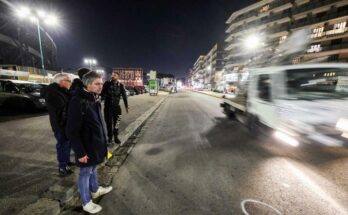The presidential elections on Sunday 16th in Chile will be experienced as right-wing primaries, even if in reality it is the first round. Faced with the 15.7 million voters compulsorily called to the polls, the opposition to Gabriel Boric arrives divided – it failed to hold the official primaries in June – but strong and with an advantage. The ultra-conservative José Antonio Kast, the radical libertarian Johannes Kaiser or the representative of the historic or moderate right Evelyn Matthei, will probably go to the second round together with Jeannette Jara, the only standard-bearer of the left-wing party in government of Gabriel Boric, who will perhaps reach the first majority this weekend. But in the second round, which will be held on December 14, the right will unite to face the left. Chile’s three right-wing parties, therefore, will be one to prevent a member of the Communist Party, the PC, from coming to power.
Jara made important efforts to show herself as a convener and candidate of the center-left and not just of the PC, even if her own party made the campaign difficult. He also announced that he will stop being part of the party or suspend his membership, in a gesture of unity and openness. This is what the centre-left world expects in the stage that will begin on Sunday. As explained on EL PAÍS by Boric’s former finance minister, Mario Marcel, a socialist, between the first and second rounds Jara will have to make an important political gesture to dispel apprehensions about the role that the PC will have in his possible government.
The right has shown in this campaign that its differences are mostly about emphasis and style, but not so much about substance. The traditional right, protagonist of the transition to democracy since 1990, did not differ much in this campaign from the new right of Kast or Kaiser. Candidate Matthei has had harsh interventions regarding crime – prison or cemetery, she promised on Monday in the last television debate – and the dictatorship of Augusto Pinochet itself. Although she later apologized, the historic right-wing candidate – liberal in her individual freedoms – went so far as to say that the deaths after the 1973 coup were inevitable. Even if at this stage he has increased his criticism of Kast (on Wednesday he assured that the libertarian seems “nicer” to him than the republican), no one doubts that the right will unite to avoid Jara and that, if they win, they will form a government.
The republicans and libertarians – Kast and Kaiser – compete together in the parliamentary elections, that is, there is an important preliminary agreement between them. From the traditional right, in turn, they have explained from the beginning in private that the differences with the far right are not fundamental in the issues currently occupying Chile, namely crime, economic growth and the control of irregular immigration. If Kast promises to cut public spending by 6 billion dollars in 18 months, Matthei – who, like everyone else, questioned the feasibility of that plan – spoke of pruning shears in the state.
The three right-wingers will measure their strength this Sunday to choose the spearhead to face the left together, although this process would be complicated if Kaiser were to beat Kast, an unlikely but not impossible scenario. Liberal right-wing parties such as Evopoli, part of the Chile Vamos coalition that supports Matthei, have publicly shown their resistance to Kast: the president, Juan Manuel Santa Cruz, had said in mid-August that “it would hurt his stomach” to govern with the Republican. Doing so with Kaiser, therefore, would provoke enormous resistance in the less doctrinaire sectors of the right, such as the Evopoli party itself. But, as happened four years ago with the Socialist Party and Boric’s Frente Amplio – a historic party that has joined a new one – it is not difficult to imagine that on this occasion the convictions outweigh the interest in returning to government.
Matthei was not Angela Merkel, as promised, Kast has become less Javier Milei than Giorgia Meloni and Kaiser, who was at the extreme limit, does not move from his radical script, which unexpectedly pushes the two right-wing parties onto the terrain of moderation, where neither Matthei nor Kast would have been in the past. They share a catastrophic vision of the Chilean present, of the actions of the Boric government and the candidate Jara, which they consider a continuity. Also uniting them are the invisible threads of the economic right which in this presidential campaign has tried to rein in the opposition candidates so that bite in front and not between them.



